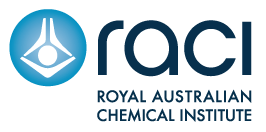After more than 18 months in the role of editors-in-chief of Australian Journal of Chemistry and handling a large number of submissions, we have been periodically both startled and bemused by fortunately rare examples of poor behaviour on the part of authors. The pressure to publish in a Western journal of established international repute remains very high for many scientists, but particularly for those hailing from countries where research funding and defined career paths remain difficult. This has led to recourse by some authors to dubious or unethical means to have their submissions accepted and CVs correspondingly enhanced. Here are some examples that one or the other of us has had to deal with (including with other journals that we are associated with).
- Authorship changes after provisional acceptance of a paper. On more than one occasion, after the corresponding author has been notified of provisional acceptance of their manuscript subject to revision, the revised manuscript is eventually returned together with a covering letter outlining the minor editorial changes and corrections that have been made. These have been accompanied by a statement that the changes have necessitated the addition of one or more authors. It is nearly always clear to us that the manuscript changes were so minor as to make it impossible that any new contribution was provided by the proposed new author(s). There have been reports of some authors making the provisional acceptance letters an opportunity to sell co-authorship places on revised manuscripts (M. Hvistendahl, Science 2013, vol. 342, pp. 1035–1039). We usually refuse to accommodate such requests unless major revisions were undertaken in which additional studies were indeed performed and reported by the new authors.
- Withdrawal of an accepted manuscript. After much effort has been spent in sourcing suitably qualified reviewers, who, themselves, then spend a great deal of time preparing comprehensive assessments together with a recommendation of provisional acceptance subject to revision, the corresponding author then notifies us that a decision has been made by their department to send the revised (and now scientifically much-improved and fully English-edited) work as a new manuscript to another journal, often one with a higher impact factor. This is despite agreeing at the time of the original submission to have the work published in our journal (subject, of course, to suitable revision and acceptance). Such behaviour is particularly galling, given the waste of the editors’ and reviewers’ considerable efforts during the manuscript handling process. Naturally, the authors are blacklisted from making future submissions.
- Simultaneous submissions to journals. On one occasion, a referee in Japan notified us that a manuscript he had agreed to review was identical to another by the same authors that he was reviewing for a different journal. On questioning the corresponding author, the excuse was given that it was the result of a ‘clerical error’ by the department’s secretary, who sent the manuscript simultaneously to different journals. It was evident that, in this case, a multiple submission was an effort to increase the chances of acceptance of the manuscript by any forum. Needless to say, it was rejected by our journal and the authors are now permanently blacklisted.
Fortunately, Australian Journal of Chemistry has a very efficient publishing office (CSIRO Publishing), which, together with its vigilant editorial board, continues to be wise to these unethical efforts to secure publication in our journal. Yet, we will undoubtedly continue to be surprised by original efforts to ‘bend’ the author submission procedures.


